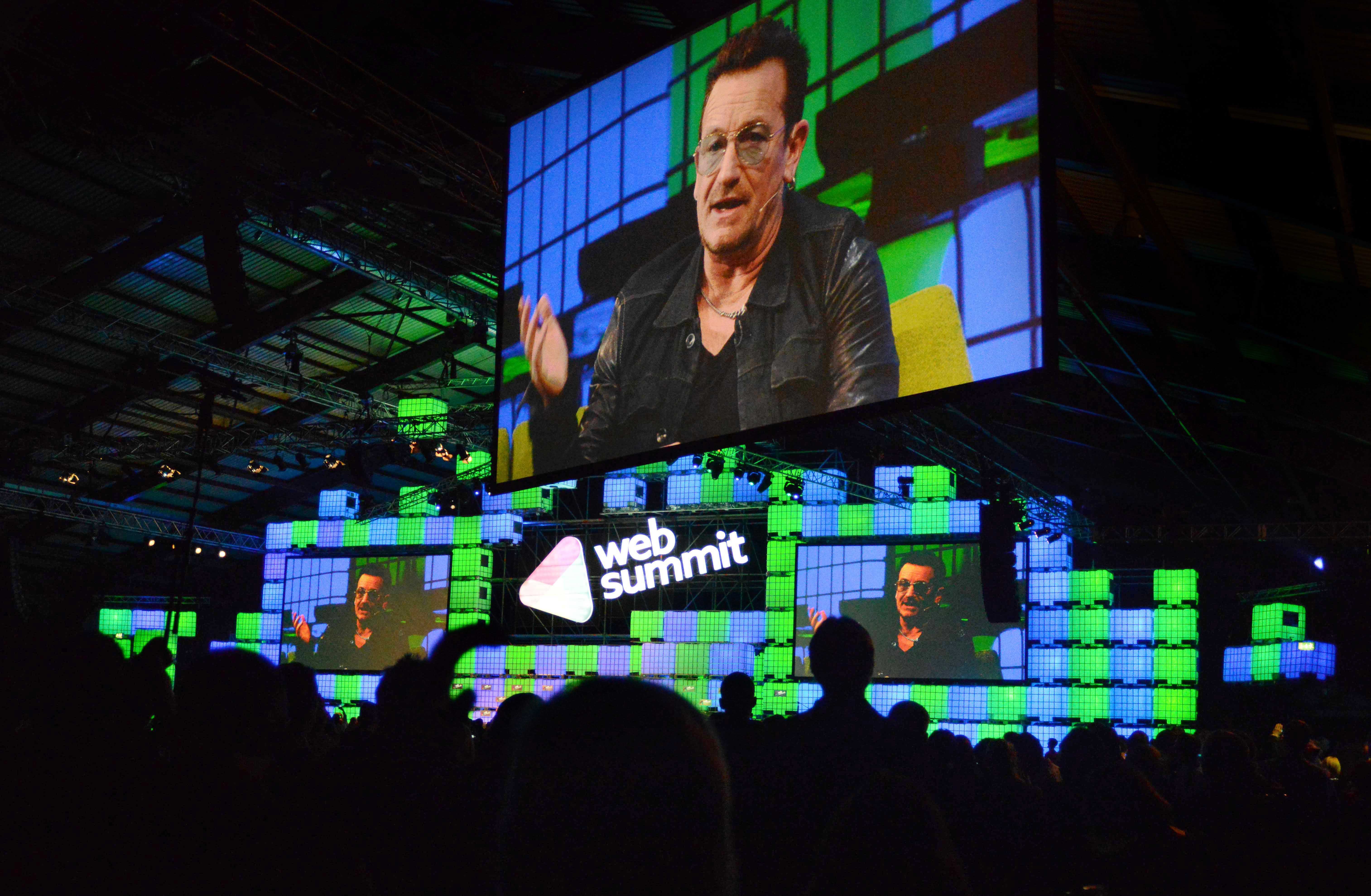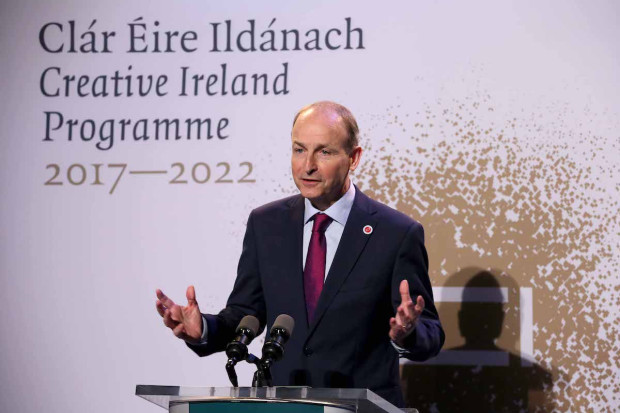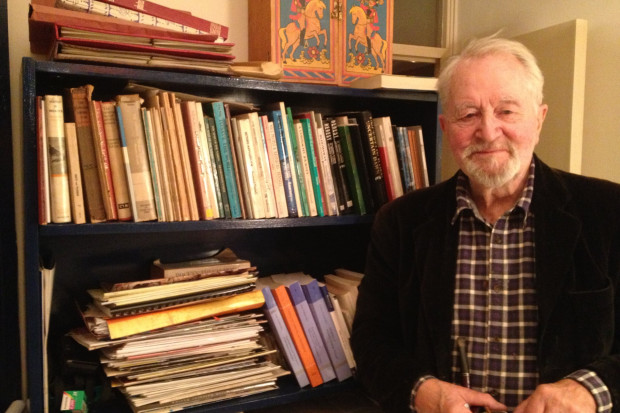
Is the Musical Focus of the Tech World Too Narrow?
Over three day days in November, I attended the Web Summit in Dublin. I was motivated to go because I wanted to hear some creative ideas on the digital world and perhaps apply them to my publishing work. That there was a dedicated Music Summit on the third day was, for a musician, a bonus.
There were actually nine stages, the others being Enterprise, Marketing, Food, Library, Builders, Machine, Sports and Centre, each of which had a range of speakers throughout the day. Over 20,000 people from all over the world attended and I felt no small sense of national pride that an event like this was happening in Ireland – and organised by a new generation of Irish people.
The Web Summit is three days of invigoration and inspiration. And yet, at the Music Summit on the third day, I felt a curious sense of disconnection. What appeared to exercise the speakers’ minds did not exercise mine. I could not escape the impression that what is happening online with publishing is more interesting than what is happening online with music – but why?
Reducing the risk
There is a behind-the-scenes revolution taking place at the moment in the way publishers think about publishing, and how they choose and present their content. It has serious implications for the wider media and society – something that was quite clear from a talk given by the Guardian technology team at Web Summit, in which they illustrated the detailed way they track the impact of every single article they publish.
Extraordinary to consider, but throughout history publishers have never really known which pages of their newspapers, books and magazines people were actually reading, which items they glanced over, which sections they read in detail, what parts of the page they completely ignored, or even when they gave up reading – and why. All of this was beyond the publisher’s ken, which meant a huge deal of guess work. The strategy was to take a broad approach, providing enough diversity of content to attract sufficient paying readers and advertisers. Publishers made guessing an art. The detail, however, often eluded them.
In digital publishing, that has changed radically. Rich data on what content attracts readers is now immediately available, and, through experimentation, publishers can see what difference a slight change to the wording, or an image, or the scheduling can make. And this information is not just available to professional publishers, but to bloggers, writers, editors and indeed anyone who hosts a website.
This allows publishers to make very informed decisions, in particular weighing up the various tugs on their resources: what readers say they want to read, what publishers think they will read – and what they believe they should read – and what readers actually read. There can be great diversity among all four. In a media world where traditional business models have been entirely unspun, understanding reader behaviour is the first step in building a sustainable and substantial media for our time.
Detached
In the risks that they take, publishers, musicians and music promoters are similar. Their effectiveness depends on their imagination, their practical and creative skills, and commercial judgement. But although digital data is reducing the risk for publishers, the music world is working in a comparative deep darkness.
Putting one’s music online is still like a scene from Gravity, a detaching from planet earth only for it float aimlessly in the ether. Putting on a concert or investing in a recording is, in a commercial sense, still something between a gamble, an addiction and a form of madness.
But musicians and artists are motivated to create for far more than commercial reasons, and so there has not been the same demand for data that has emanated from publishers. Nonetheless, it is surprising, given music’s centrality to digital developments, that some useful data hasn’t emerged.
Musicians and promoters generally announce a concert or tour, and then set about convincing people to go, rather than base it on any detailed data on demand, for example, popular venues, times, days, similar events, prices, marketing channels, communication channels. Even small strategic changes based on data may give an artist a better chance of engaging more people.
The available data for practising musicians and promoters is thin. The analytics that Soundcloud and YouTube provide on one’s music are so basic as to be of little use to a musician in a business sense. Pandora has recently launched a service whereby artists will be able to view information about their songs’ popularity, breakdowns of the audience based on age and gender, and a map that shows where listeners are (generally) located, but how much will that really help musicians?
Regardless of how many gigs a musician does, no audience data flows to them once they walk off stage. And if it did, they could be engaged by so many different promoters in different geographic locations in the future, it might not be that much use to them. Spotify has just launched a ‘Top Tracks in your [online] Network’ feature, but, again, where is the data that will genuinely address some of the risk for musicians and promoters, as it does for publishers?
A narrow musical focus
The reason why various digital services are providing musicians with useless data, or none at all, could well have to do with a narrow musical focus lodged within the tech world itself.
Firstly, the tech world is overly concerned with a commercial idea of musical life – that everything can be divided up into ‘fans’, ‘tracks’ and ‘gigs’ – rather than embracing the broader, more variegated reality of musical life, which is that musical experience takes place in far more forms than this. Secondly, it is obsessed with recorded music and what people listen to online, and inferring behaviour from that, rather than exploring their actual musical behaviour off-line. Thirdly, it is focussed more on creating data on musicians and listeners for advertisers and the larger music industry, rather than creating data for the creators themselves, both non-professional and professional.
Consider – as an example of what is missing from this worldview – the musical life this Christmas for which we have little or no data: the woman, for instance, who listens to a range of pop artists on the bus every morning on her way to work, yet the live music she will listen to this Christmas is the band in the bar during office drinks, the carol singers in the street when she’s shopping, her niece singing in the school concert, the music at the club where she goes dancing; she may go to a show, but it will be comedy, not music, and perhaps she’ll get a ticket as a present for a concert in the new year that someone else thinks she will like; meanwhile, she might sing at a party over Christmas with some friends. Her brother plans go to hear the Messiah this Christmas in the local cathedral performed by a local choir, but he doesn’t own a recording, and would he really listen to it online? Her sister is very serious about her music and has lots of indy bands in her collection, but she has moved on and is more interested in music she hasn’t heard. She’s got some new friends from college and is turning up at venues and gigs that she never frequented before. Some she’ll return to, some she won’t.
The real data on audiences that musicians need is on the ground, not just in our earphones. People hear music everywhere and it informs their musical taste. They don’t have to be ‘fans’. Some are knowledgeable about the music they hear, some are searching, and whatever musical experience they have is a part of their own life, their own creative journey and thought process, and doesn’t sign them up to any club.
There is an opportunity here for the tech world, to start to track what is happening in musical life and connect that data, and it could be a major advance for music when it is achieved. For all the extraordinary advances that we have seen over the past twenty years, the sophisticated, complicated and often chaotic musical lives we lead from day to day still remain elusive, and, for now, practically untraceable.
Listen to Toner Quinn’s interview on BBC Music Matters podcast, November 2017 on our musical lives on the internet.
Published on 12 December 2014
Toner Quinn is Editor of the Journal of Music.
















